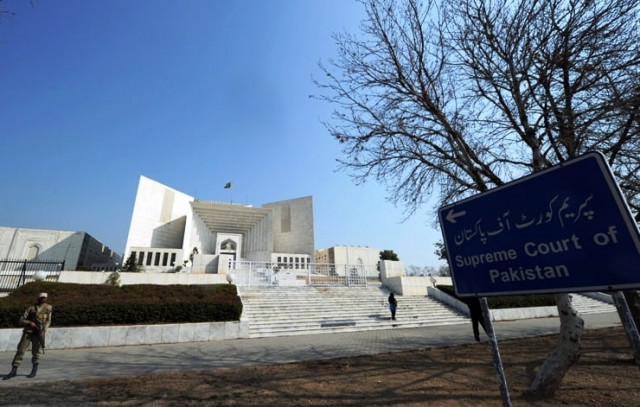Growing tendency to defy court: SC
Apex court releases detailed verdict, says PM duty-bound to give effect to court orders.

Criticising the “growing tendency” by state functionaries to not obey court orders, the Supreme Court has said that this practice would lead to anarchy in the country.
Penned by Chief Justice Iftikhar Muhammad Chaudhry, the Supreme Court released a detailed judgment of its order in the Contempt of Court Act 2012 case – in which the new law was adjudged to be null and void – on Saturday.
“The growing tendency of not obeying judgments of the courts by the State functionaries, including the high-ups of the executive will reduce the judgments/decrees of the courts of law to mere paper decrees and render the whole system of administration of justice ineffective and lead to anarchy.”
The detailed verdict mentioned the National Reconciliation Ordinance (NRO) case as an example in which its orders are constantly defied due to which a former premier Yousaf Raza Gilani was tried, convicted and disqualified for contempt of court.
Gilani’s successor Prime Minister Raja Pervaiz Ashraf is also facing contempt of court proceedings in the same case. He is set to appear before the court for the second time on September 18 to record his statement on whether he will write a letter to the Swiss authorities for reopening graft cases against President Asif Ali Zardari.
“Though the courts, exercising judicial restraint, have always used their power to punish for contempt sparingly, but at the same time they have a reciprocal expectation from the persons against whom the same were issued for implementation/execution of the judgments, orders and directions,” read the court judgment referring to the present contempt proceedings against premier Ashraf.
The court drew the government’s attention to Article 190 of the Constitution which itself declares that all executive and judicial authorities throughout Pakistan shall act in aid of the Supreme Court. The prime minister is, therefore, duty-bound to give effect to the decisions of this court, the judgment said.
‘No blanket immunity for anyone’
The court also made it clear in its judgment that no protection from contempt proceedings is available to any of the state functionaries. “Clearly, considering the language employed in Article 204, no protection is available to any of the state functionaries mentioned in Article 248(1) from contempt proceedings … unless an amendment is made…”
Justice Khilji Arif Hussain, in his separate note, said, “Article 204 of the Constitution is not to protect the ego of the Judges but in fact it protects the right of public generally and specially of the litigant.”
In his additional note, Justice Jawwad S Khawaja highlighted that the power to punish contemnors not only exists in law-abiding nations of the world, but has also been used whenever required to enforce court orders.
Conduct of judges
The court, without mentioning the contemptuous speeches delivered during the legislation process of the contempt act in parliament, held that “In view of Article 68 of the Constitution … the [National Assembly] Speaker is obliged not to allow a member to discuss the conduct of any judge of the Supreme Court or a high court in the discharge of his duties and if a member does it in violation of the above provisions, the speaker is expected to take any of the actions envisaged under rules.”
Published in The Express Tribune, September 16th, 2012.


















COMMENTS
Comments are moderated and generally will be posted if they are on-topic and not abusive.
For more information, please see our Comments FAQ